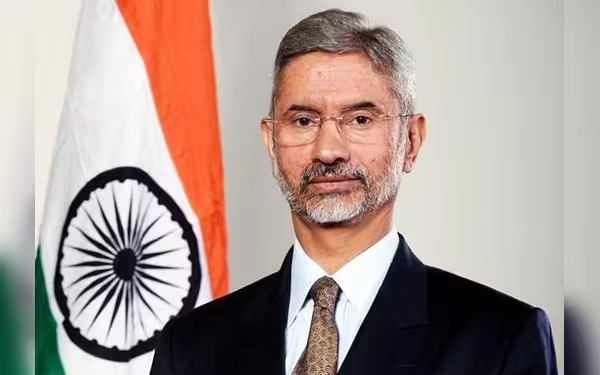Sunday, October 6, 2024 02:36 AM
Jaishankar Rejects Asian NATO Concept for India
- Jaishankar emphasizes India's non-alliance policy.
- India prioritizes strategic autonomy over military alliances.
- Concerns about regional security influence discussions.
 Image Credits: tribune.com.pk
Image Credits: tribune.com.pkJaishankar asserts India's commitment to non-alliance, rejecting the Asian NATO concept amid regional security concerns.
In recent discussions surrounding international alliances, Indian External Affairs Minister S. Jaishankar has made a significant statement regarding the concept of an "Asian NATO." This term refers to a potential military alliance in Asia, similar to the North Atlantic Treaty Organization (NATO) that exists in the West. The idea has gained traction among some political figures, particularly in Japan, where there is a growing concern about regional security threats. However, Jaishankar's remarks suggest a different perspective, particularly in the context of India's foreign policy.
During an event at Washington's Carnegie Endowment for International Peace, Jaishankar emphasized that India has never been a treaty ally of another country, unlike Japan. He stated, "We don't have that kind of strategic architecture in mind," when responding to inquiries about the call for an Asian NATO made by Japanese politician Shigeru Ishiba. This statement highlights India's unique position in the geopolitical landscape of Asia, where it seeks to maintain its sovereignty while engaging in strategic partnerships.
Jaishankar's comments reflect India's historical approach to foreign relations, which has often been characterized by non-alignment and a focus on bilateral relationships rather than formal alliances. This stance allows India to navigate complex regional dynamics without being tied to the obligations that come with treaty alliances. By not committing to a military alliance, India aims to preserve its autonomy and flexibility in responding to various international challenges.
The notion of an "Asian NATO" raises important questions about the future of security in the region. As countries like China continue to expand their influence, the need for collective security arrangements becomes more pressing. However, India's reluctance to join such an alliance may stem from its desire to avoid being drawn into conflicts that do not align with its national interests.
Jaishankar's remarks serve as a reminder of India's distinct approach to international relations. While the idea of an "Asian NATO" may appeal to some, India appears committed to a path that prioritizes its independence and strategic autonomy. As the geopolitical landscape continues to evolve, it will be interesting to see how India balances its relationships with other nations while maintaining its core principles. The future of security in Asia may depend on the ability of countries to collaborate without compromising their sovereignty, a challenge that will require careful navigation in the years to come.













